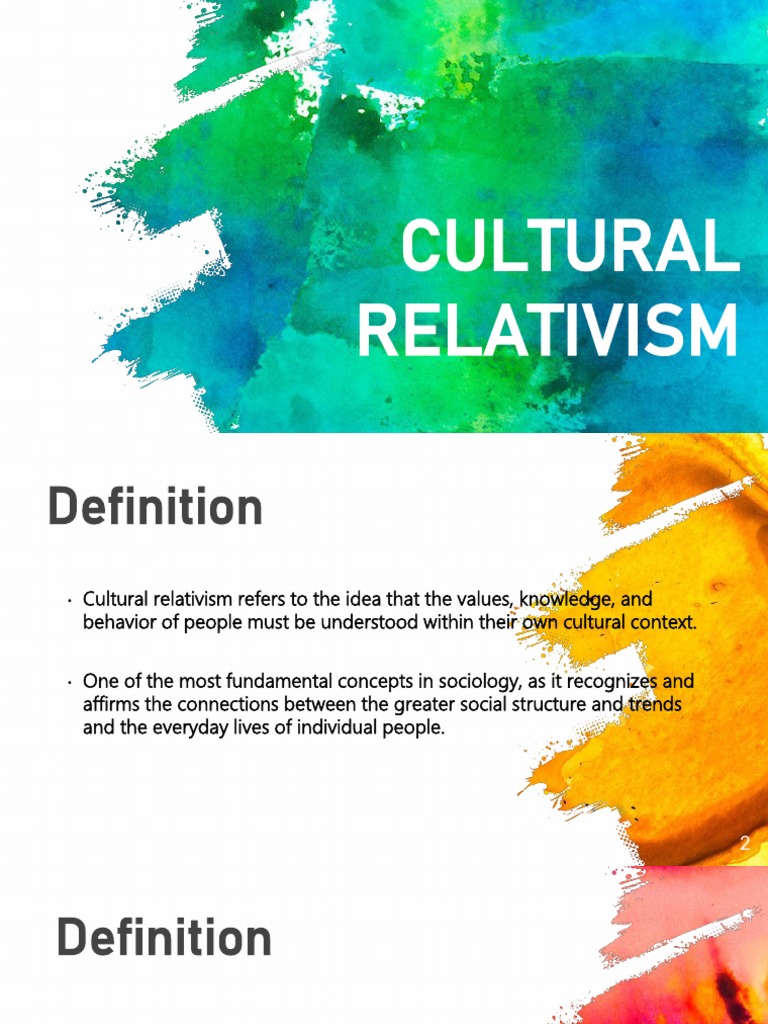Cultural relativism is a concept that posits that a person’s beliefs, values, and practices should be understood based on that person’s own culture, rather than be judged against the criteria of another culture. This notion has profound implications across various domains, including ethics, philosophy, and social sciences. By contemplating the merits and demerits of cultural relativism, we can gain a clearer understanding of its role in contemporary discourse. This examination turns pertinent as globalization broadens interactions among diverse cultures. Below, we outline the major pros and cons associated with cultural relativism.
Pros of Cultural Relativism
One of the most compelling advantages of cultural relativism is its inherent fostering of tolerance and empathy. By emphasizing that cultural practices and beliefs are context-dependent, cultural relativism encourages individuals to approach differences with an open mind. This can lead to a more harmonious coexistence among different communities, as it mitigates ethnocentrism—the belief that one’s own culture is superior. For instance, acknowledging diverse social customs can lead to greater respect for traditions that may initially appear foreign or perplexing to an outsider.
Furthermore, cultural relativism facilitates a deeper understanding of the complexities within various cultures. In anthropology, it is especially vital for comprehending the social structures and moral frameworks that govern distinct populations. Researchers and practitioners can better appreciate the nuances that influence behaviors, values, and social norms. Notably, such insight is essential in fields like public health, where cultural beliefs can significantly impact healthcare practices and patient interactions.
Additionally, cultural relativism plays a crucial role in promoting social justice. When societies recognize the validity of different customs and beliefs, there is potential for the marginalized voices to be amplified. This recognition can aid in advocating for the rights and needs of minority groups, granting them visibility in a world that may otherwise overlook them. Achievements in cultural diversity and inclusion can arise from such advocacy.
Moreover, embracing cultural relativism can enhance personal growth. Exposure to unfamiliar ways of thinking can challenge one’s preconceptions and stimulate intellectual curiosity. By engaging with alternative perspectives, individuals can expand their horizons, fostering creativity and innovation. This dynamic exchange of ideas can catalyze progress in various domains, including art, science, and social policy.
Cons of Cultural Relativism
Another point of contention revolves around the challenge of cross-cultural criticism. If all cultural practices are to be valued equally, the potential for meaningful dialogue and critique diminishes. In a global landscape that grapples with issues such as climate change, advocating for sustainable practices becomes complex when cultural relativism negates the validity of external, evidence-based arguments. Actions detrimental to the environment may be perpetuated under the rationale of cultural significance, leading to global consequences.
Furthermore, cultural relativism can lead to a crippling cultural stagnation, where societies become resistant to change due to an excessive reverence for tradition. In contexts where innovation and adaptation are crucial for societal development, such as in technology or healthcare, an unwavering adherence to tradition may inhibit progress. The balance between respecting culture and fostering advancement is delicate and often contentious.
Additionally, cultural relativism may inadvertently contribute to cultural essentialism—the notion that any culture is homogenous and unchanging. Such oversimplification disregards internal diversity and the capacity for cultural evolution over time. This can perpetuate stereotypes and engender a false sense of understanding, further alienating groups that do not fit neatly into these categorizations.
Finding Common Ground
Through these dialogues, a ripe opportunity emerges for developing intercultural competence. Individuals and societies can engage in critical, respectful conversations that honor diverse perspectives while striving for common ethical ground. Engaging with differences, rather than shunning them, fosters shared understanding and cooperative action to address global challenges.
In conclusion, cultural relativism offers substantial benefits, from promoting tolerance to deepening cultural understanding. However, it also presents challenges regarding moral relativism and cultural stagnation. As society grapples with these dynamics, the key lies in finding a balance between respect for cultural diversity and commitment to universal principles of justice and ethics. This balance is not only essential for individual growth but also for fostering global cooperation and progress.
